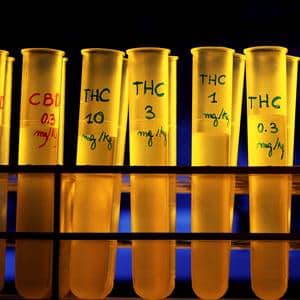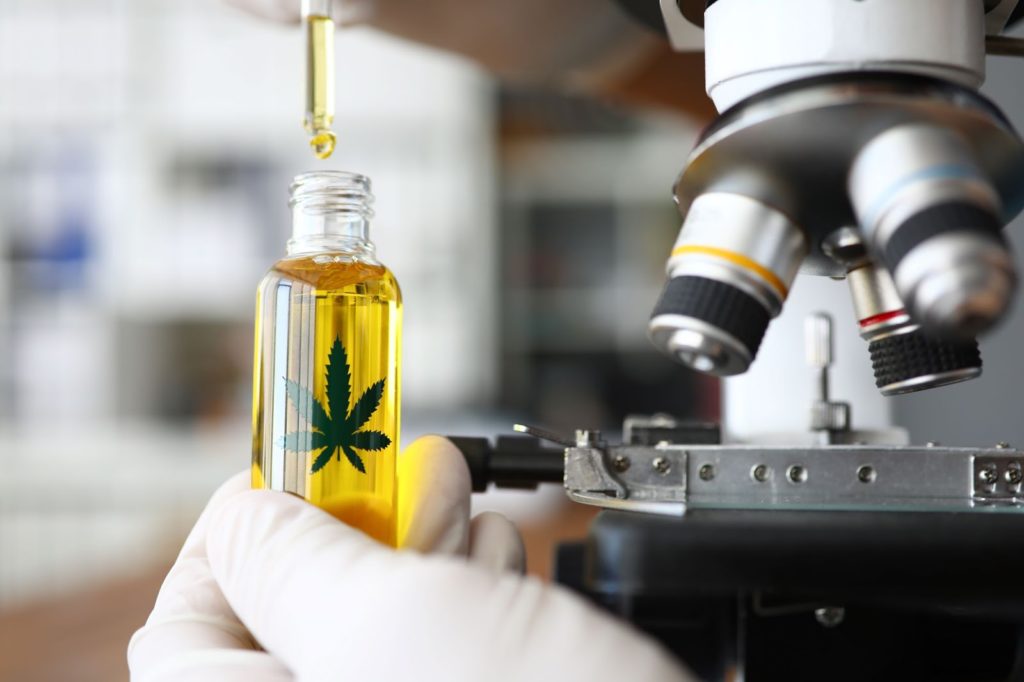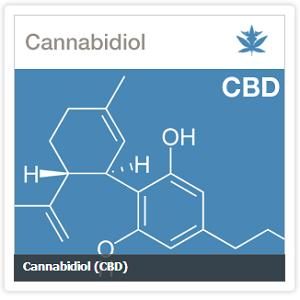
Marijuana Science – Cannabidiol (CBD)
Chances are if you consume marijuana, then you are familiar with THC (tetrahydrocannabinol). But are you familiar with CBD (cannabidiol)? If you don’t know about cannabidiol, I can’t blame you. Ever since the private sector picked up marijuana research, marijuana science information has been coming out at a neck-breaking pace. Below is a great article that I read on Toke of the Town’s site that gives the breakdown:
“Other” Compound In Marijuana Shows Promise Fighting Cancer
By Steve Elliott for Toke of the Town
Two of the major compounds in marijuana — THC (tetrahydrocannabinol) and CBD (cannabidiol) have cancer-fighting properties, according to scientists researching them. But while the biological mechanisms THC uses are well documented, there are still mysteries surrounding the lesser-known CBD.
Clinical trials prove that CBD eases pain and inflammation, reports Dana M. Nichols at the Stockton Record. Sean McAllister, a scientist at California Pacific Medical Center Research Institute in San Francisco, has, along with his research associates, used CBD to shrink cancerous tumors.
But CBD doesn’t fit well in the already-discovered human receptors that fit THC, and scientists don’t yet know how it modulates some of the same systems as THC, according to McAllister.
“There is not a lot of data on it,” McAllister told the Record.
Right now, McAllister is investigating how CBD attacks a gene called Id-1 that is the key to the functioning of cancerous cells.
“If cancer cells adopt this protein, it allows them to metastasize,” McAllister said. “The hypothesis would be that if you can knock this gene down or inhibit it, then the cancer won’t metastasize.”
McAllister’s studies found that not only does CBD inhibit the growth of cancerous tumors, it also leads to programmed cell death, “which is very important if you want to kill these tumors so that they don’t grow back,” McAllister said.
One big advantage to both cannabis-derived compounds — THC and CBD — is that they are virtually non-toxic, unlike many cancer drugs, painkillers, and other pharmaceuticals.
“There is no way to actually kill yourself with the natural compounds,” McAllister said. Overdoses of the kind that kill opiate/opioid users are impossible with cannabis, because, again, they are nontoxic, and besides they interact with different receptors.
“There are no cannabinoid receptors on the brain stem which controls breathing,” McAllister said. “It is quite a safe compound actually.”
Below is another great breakdown from the hardworking people at NORML:
The administration of the non-psychotropic cannabis plant constituent cannabidiol (CBD) is “non-toxic” to healthy cells and is “well tolerated” in humans, according to review data published online in the scientific journal Current Drug Safety.
Investigators at the University of Sao Paulo, Clinical Hospital reviewed over 130 papers assessing the impact of CBD in humans and animals. Studies describing the effects of multiple cannabinoids or CBD extracts were excluded from the analysis.
Authors reported: “Several studies suggest that CBD is well tolerated and safe in humans at high doses and with chronic use. … [S]tudies suggest that CBD is non-toxic in non-transformed cells and does not induce changes on food intake, does not induce catalepsy [muscular rigidity], does not affect physiological parameters (heart rate, blood pressure and body temperature), does not affect gastrointestinal transit and does not alter psychomotor or psychological functions.”
They concluded, “Based on recent advances in cannabinoid administration in humans, controlled CBD may be safe in humans and animals. However, further studies are needed to clarify these reported in vitro and in vivo side effects.”
Separate investigations of CBD have documented the cannabinoid to possess a variety of therapeutic properties, including anti-inflammatory, anti-diabetic, anti-epileptic, anti-cancer, and bone-stimulating properties. In recent years, patients in states that allow for the use of cannabis therapy, particularly California, have expressed an interest in plant strains that contain uniquely high percentages of the compound.
Cannabidiol is presently classified under federal law as a schedule I prohibited substance. Such substances are required by law to possess “a high potential for abuse,” “a lack of accepted safety … under medical supervision,” and “no currently accepted medical use in treatment in the United States.”
Below is a first hand account of how cannabidiol can help, courtesy of Culture:
Patient: Kalle Snyder
Age: 30
Condition: Tourette’s Syndrome, Attention Deficit Disorder, Obsessive-Compulsive Disorder, anxiety disorder, panic attacks, migraines, depression, sleeping disorder
Using Medical Cannabis since: 2010
Why did you start using medical marijuana?
In 2009, I started doing some research because I started noticing that all of my disorders were not getting better with the slew of medications I was taking. I felt more depressed; I was developing more tics and sleeping less. I just felt toxic. I talked to a friend who mentioned that his sister had a prescription from her doctor for medical cannabis and it was helping her with her migraines and anxiety. I went to my doctor to ask if she thought medical cannabis would help me. She agreed and prescribed medical cannabis to me for my migraines. She also told me that it may help with some of the other disorders I have.
Did you try other methods or treatments before marijuana?
When I was 12 I was diagnosed with TS, OCD, ADD and panic attacks. I have been on pharmaceutical drugs since then to treat the symptoms of these neurological disorders. As I got older I developed depression and anxiety so I was given drugs for those disorders as well. In middle school all of these disorders progressively got worse; the migraines I had been getting since the age of 5 also started to intensify leaving me unable to function, which made me need more drugs. I have taken Buspar, Paxil, Amitriptylene, Prozac, Catapres, Maxalt, among others. I am now happy to report that the only medicine I am currently taking is medical cannabis.
What do you say to people who are skeptical about marijuana as medicine?
I started doing research and found that there have been studies done on the effects of cannabis, namely the cannibinoid cannabidiol (CBD), on people with Tourette’s Syndrome (TS). It has been shown that CBD has reduced the severity and occurrence of tics in many cases. I can vouch for this. I have this one tic in my throat that has occurred on and off for years that literally stops me from breathing (scary as hell, by the way, and doesn’t help with me anxiety). Cannabis has helped dramatically with this particular tic and [it] has been able to greatly reduce the severity and occurrence of it. Not only has it helped with my TS, but it has helped with my other disorders as well. (Jasen T. Davis)





